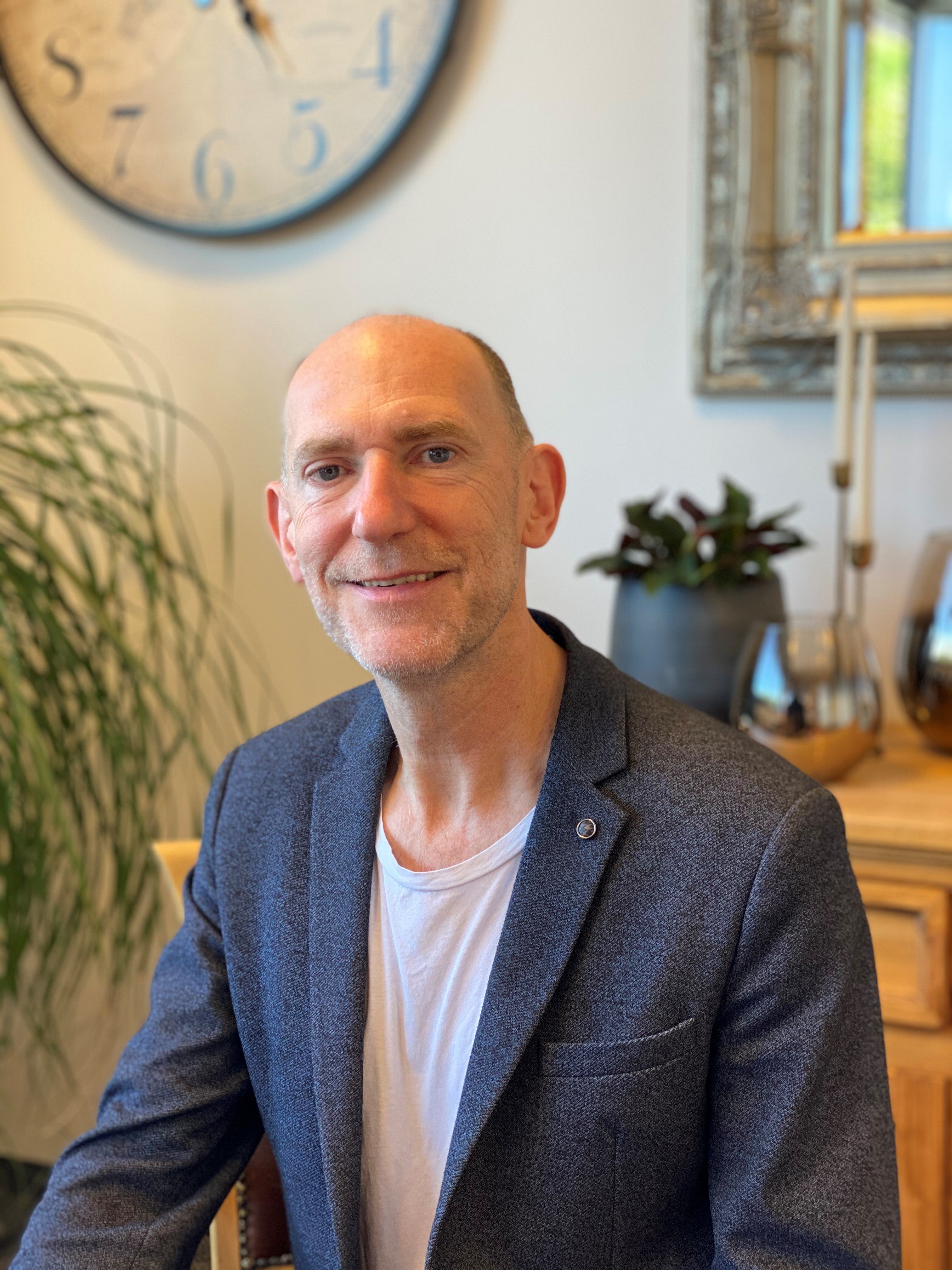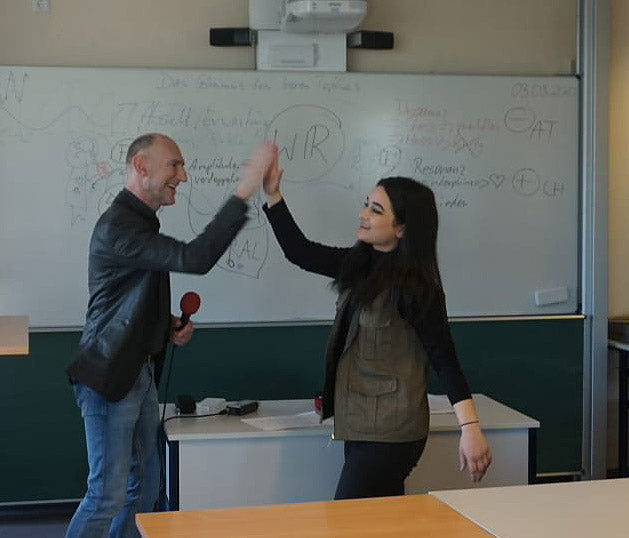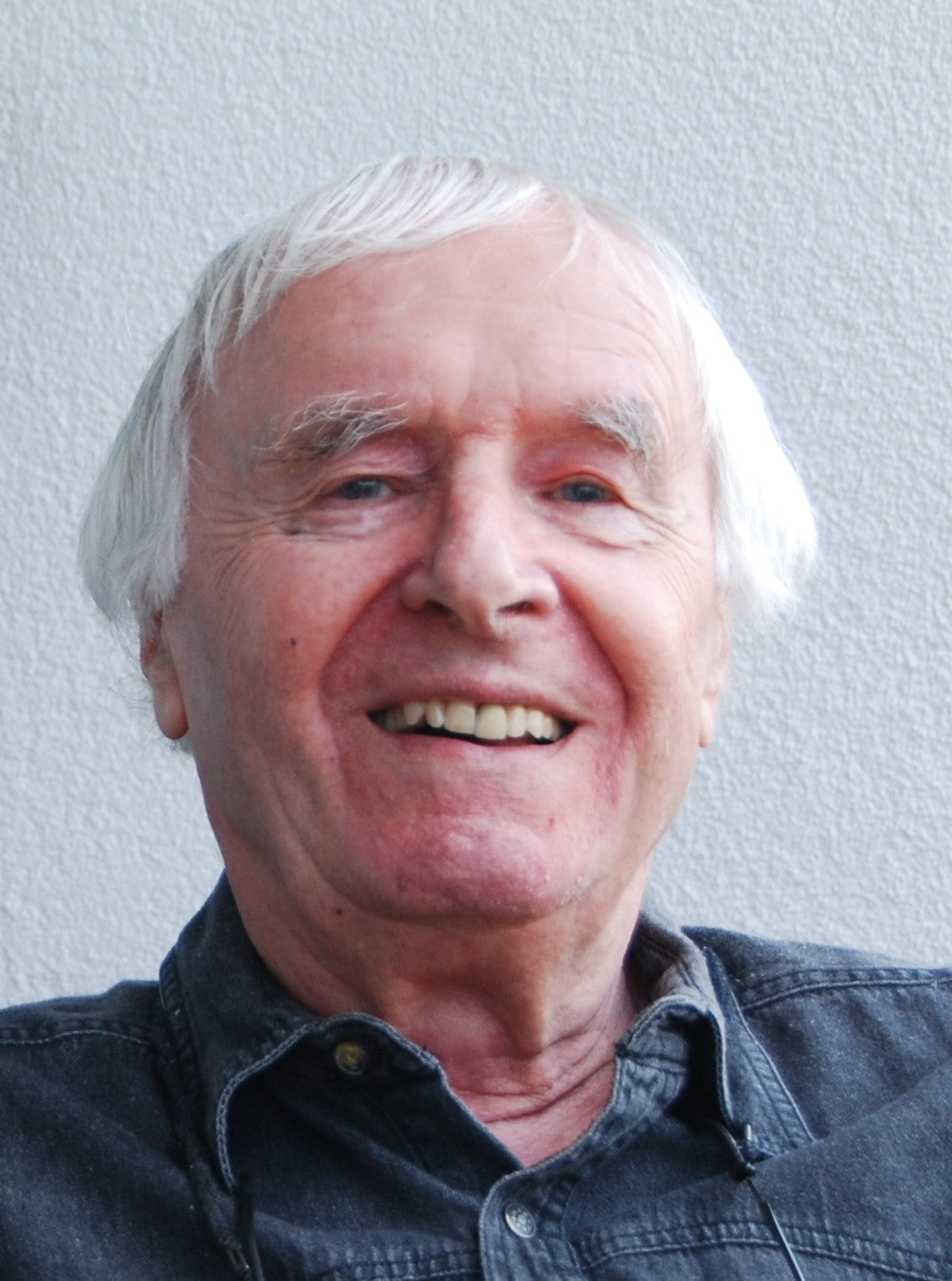
Successful coach Andreas Winter motivates: “Let’s turn school into a game in which everyone wins!”
Successful coach Andreas Winter motivates: “Let’s turn school into a game in which everyone wins!”
"Dear parents, please give your children more confidence and responsibility - without pressure and interference they can think and learn better. And to you students I say: don't give school too much importance - it is only a short period in life. It is not there to have fun and entertain you. Make the most of the few hours a day, get your teachers excited about you - because you yourself decide how you feel when you learn and what grades you get." Graduate teacher Andreas Winter , author of the guide "School time without stress!" , sees the billion-dollar tutoring industry as a "disgrace for our society and a disgrace for an unsuitable school system, immature, overwhelmed parents and unreflective teachers". In an interview he explains his successful approach "coaching instead of tutoring".
Criticism of the school and education system is now filling libraries, and the current Corona crisis clearly shows that new ideas and sustainable concepts are lacking. In your opinion, what is wrong with the "school system" and what can be done about it?
Winter: The big mistake in the school system is that it was created to turn students into careerists who conform to the system and who dare not confidently demand high wages or become self-employed. Functioning, well-behaved civil servants, workers and employees who do what they are asked to do are the politically desired result. The ability, talent, inclinations or weaknesses of the individual student are not taken into account, nor are intelligence promoted or creativity and critical thinking skills developed. And as if that were not bad enough, there is also the following: although all leading school, learning, teaching and brain experts unanimously confirm and have been warning for years that this compulsory schooling is not appropriate for learning, hardly anyone realizes this because we are so used to this system and consider it normal. It is normal - but not natural! Learning and teaching work completely differently than in school, but neither parents nor teachers nor even head teachers can change this.
You like to say that you were a bad student yourself and have bad memories of your school days. How did you overcome this phase and what brought about the turnaround to a successful life as a scientist, author and director of one of the largest coaching institutes in Germany?
Winter: Oh, I wasn't a bad student after all! I just had a few problems with teachers who hated me, with classmates who bullied me, and with the material in the lessons that was pointless, and on top of that I got very bad grades, but I was never a bad student. At some point I understood how I could get good grades without doing homework, without studying for tests, and even though I skipped classes sometimes. From then on, school became a bearable evil that you could somehow get over. What helped me incredibly were some teachers who believed in me, and in the senior years a subject that I was very interested in - education! Some teachers recognized my potential and enjoyed letting me really go for it with presentations, interpretations and semiotic analyses. That meant I basically just made a "big" final spurt and got good A-levels. But because I didn't know what I wanted to do for a living, I started by studying what I was passionate about: the humanities! Luckily, I still don't have a "job" to this day, but rather I devote myself exclusively to my profession. And because I love it so much and think it's so important, I train coaches and write these books. I don't need the pluperfect or algebra for that.
Your book is aimed at students of all ages and their parents to help them master school calmly and successfully. How do you motivate bored teenagers to voluntarily pick up a book, and what advice do you give parents so that they don't despair of their "wayward" offspring?
Winter: Teenagers are very easy to motivate. You just need to know what they are doing: Do you want to kiss a girl without her slapping you? Then pay attention in biology. There you will learn what well-circulated lips and dilated pupils say about their hormonal status. Or pay attention in English, because Shakespeare explains the same thing in his stories. Do you want an A in social sciences? Then pay attention in physics, because there you will learn about the law of least resistance. This also applies to the human brain and the psyche with its need for peace, security and community. If you want to win an arm wrestling match, read up on the laws of leverage and avoid opponents with longer forearms. If you want to make a fire that cannot be extinguished with water, light your pencil sharpener...
So, you see, you just need to create some relevance. And if the teenagers knew that in my book I describe how I got teachers to happily give me good grades even though I never studied hard, how I used self-hypnosis to get top marks on my high school exams and how to pass an oral exam even if you can't answer a question straight away - then they would be curious about this book all by themselves. If their parents then anxiously advise against reading it, it is guaranteed to be their bedtime reading for the next three days...
And my advice to parents is: trust your children, because they want to learn what they are passionate about and can think better without pressure and interference. They want to live a normal, successful life in prosperity, and you don't need to tell them to do that. And children bear the emotional mark of their parents, but in the language of their own generation. Most of them are not that "defective" - we just don't understand that we ourselves made them what they are.
“Coaching instead of tutoring” is your innovative approach to setting off a positive spiral of motivation and noticeably improving grades without the need for strenuous cramming. What does “student coaching” look like and what feedback do you get from your clients or teachers?
Winter: It all started in 1989, I was just 23 years old when Olli, a friend of mine with whom I occasionally played in bands, approached me and said: "Andi, you know how to do hypnosis. Can't you help me do better at school? I got a grade of five in math and Latin and I need a grade of two in the next test, otherwise I won't be allowed to take my A-levels." I thought: How am I supposed to do that? But then I remembered that I had read about it in some American book about hypnosis. So I didn't know how it worked, but I knew THAT it worked. I did a little hypnosis session with him, which turned out to be a real hit: He got grades of two in his tests and was allowed to take his A-levels - and he passed that too! Encouraged by this, I started to develop a method that I could even teach to other coaches.
Essentially, student coaching is about understanding school and lessons from a systematic perspective, understanding the personality and professional motivation of your teachers, protecting yourself against bullies and saboteurs and not allowing yourself to be put under pressure by worried parents. A little learning theory, a little self-esteem building and the whole thing presented calmly are usually enough to sit in class with a different awareness - a different mindset, as it is called in modern German. This usually immediately generates positive feedback from the teacher.
My clients have been enthusiastic for twenty years, and teachers sometimes invite me to their schools or even attend my student coaching training courses. The only difficulty is actually the parents, who have to understand that you shouldn't hit a crooked nail even harder with a hammer. They should stay out of school matters as much as possible and protect their child from school.
If you recommend "rocking" school or "protecting" the child from school, don't students and parents run the risk of losing the very personal responsibility that the "seriousness of life" demands later on? How do you respond to possible objections from concerned educators?
Winter: I recommend that because I want to give school the importance it deserves: a short period in life - nothing more. To "rock" school - by that I mean: don't be afraid, impress your teachers, make the few hours a day something that you enjoy, because YOU decide how you feel and what grades the teacher gives you. Make sure you experience success yourself!
And I say to parents: If you want your child to learn what responsibility is, don't be a drill instructor, but don't be a kindergarten teacher either. Don't be a helicopter hovering around your child, and don't be a free tutor, just mom and dad. That's all. Don't protect your child from the teacher, protect your child from the school. If a child has fallen out with the teacher, they will soon realize that this was a really bad idea, because the teachers have the upper hand. The child has to sort this out themselves. The child has to realize that school is not a place where you have to fight power struggles with teachers, because the teachers are actually in the same boat. Curricula, teaching regulations and school rules dictate what should be done and how – and almost everyone in the school system suffers as a result.
Personal responsibility can only be made conscious when parents stop playing parents – only then can children stop being (irresponsible) children. My advice to concerned educators is to help children to realise that they can do anything and don't have to, but that they have to bear the consequences themselves. "Do not do to others what you do not want done to you!", or in more modern terms: "No arms, no biscuits!", every child understands. If an educator does not understand this, they should perhaps retrain. That was a bit cheeky, but the so-called "super nannies" and "strictest educators in the world" all make the same mistake: they encourage obedience to authority and prevent independence. If we want to live in a democracy, then that is the wrong tone. If a child never feels that there are natural limits, but the only limits are the rejection of parents and educational rules that no common sense can understand, how will this child ever become a responsible, socially competent, decision-making adult who develops his or her potential?
Psychological pressure is not only caused by the school system with its performance requirements, but also often by the digital and analogue hostility of classmates. How can children survive exam anxiety and bullying attacks unscathed?
Winter: Bullying - a very important topic! The usual suspects, school failures or victims of parental pressure, sometimes don't like it when someone is better than them. Humiliation, slander, blackmail, threats, beatings and sabotage are the usual methods used by school bullies to let off steam. There is only one solution: stay cool and show compassion. You have to know that such bullies actually see themselves in their victims and treat them exactly as they once suffered from parents, siblings or other people they care about. If you no longer offer yourself as a victim of bullying, if you don't moan and run to your parents and teachers, if you don't allow yourself to be blackmailed and simply don't respond (that's what I mean by "stay cool"), then the bullying relationship no longer works. As soon as the victim of bullying understands that their perpetrators are themselves oppressed poor bastards who only receive pressure from their own parents instead of protection, then they can also muster sympathy for the class bullies. However, the topic is a little too complex to provide a complete solution in three sentences. But it does exist. And it works - I have experienced it myself.
The thing about exam anxiety is simple: you have to know how an exam works and what makes an examiner tick. Most people think that an exam tests whether you can do something and that the examiner is a man-eating demon just waiting to ruin your life. That's wrong! An exam tests whether you are ready to take part in an exam. You can help the examiner to test you on what you have some knowledge of. And once you understand that, everything is very simple. I describe how to do that in a separate chapter in my book.
Basically, I think that the billion-dollar tutoring industry is a disgrace for our society. It is a disgrace for an incompetent school system, for immature and overwhelmed parents, for unreflective teachers who have not understood anything in their studies. The big losers are the children who look for the fault in themselves and believe that they can fight it with diligence. Let's turn school back into a game where everyone wins! I describe how to do this in my book!
Book tip:
Andreas Winter: School time without stress! How to strengthen your child in three steps. Mankau Verlag 2020, paperback, 13.5 x 21.5 cm, 191 pp., 15.95 euros (D), ISBN 978-3-86374-580-6.
Audiobook tip:
Andreas Winter: School time without stress! How to strengthen your child in three steps. Audiobook with student coaching. Mankau Verlag 2020, 1 MP3CD in a jewel case, total running time approx. 332 minutes, 8-page booklet, 19.95 euros RRP (D), ISBN 978-3-86374-579-0 .
Link recommendations:
More information about the guidebook “School time without stress! How to strengthen your child in three steps”
To the reading sample in PDF format
More information about the audio book “School time without stress! How to strengthen your child in three steps” (1 MP3 CD in a jewel case)
More about the author Andreas Winter
To the Internet forum with Andreas Winter











